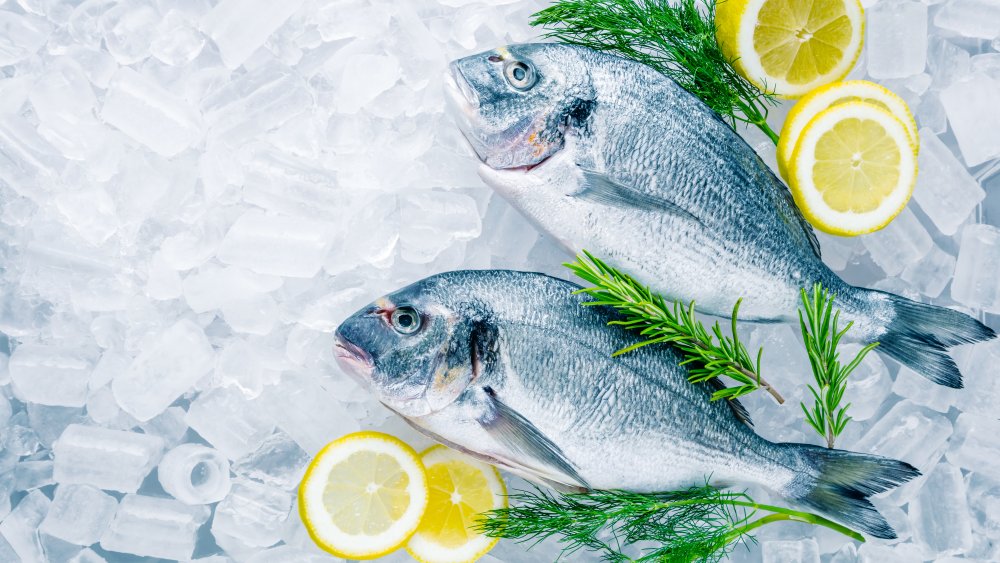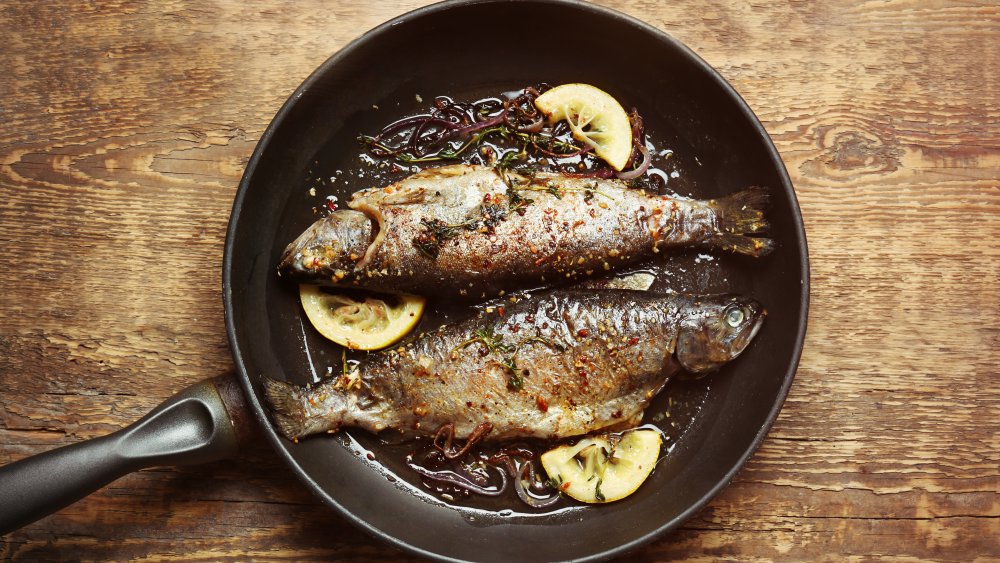You Should Never Put Fish In A Cold Pan. Here's Why
Cooking, like any other craft, has its own set of rules. Everyone has made their fair share of mistakes in the kitchen. New, and even seasoned cooks, are guilty of not seasoning foods correctly, making unsuccessful ingredient substitutions, and not allowing meat to rest before slicing into it.
One of the most common mistakes home cooks make is starting to cook food in a cold pan (via Today). Almost always, a pan should be heated prior to placing food into it. There are a few exceptions to this rule, according to The Spruce Eats. These exceptions include cooking bacon, caramelizing onions, or when rendering fat off of a protein such as duck. Additional situations that call for starting your cook with a cold pan include toasting spices, boiling eggs, and browning butter (via Bon Appétit).
However, you can toss all these ideas about cold pans out the window when you're planning a fish dinner. Due to its chemical composition (via ResearchGate), all varieties of fish need to be cooked in a hot pan.
Why fish always needs to start cooking in a hot pan
According to Business Insider, unless you enjoy scraping fish bits off your pans all night, do not put raw fish into a cold pan. Instead, heat up a bit of oil on medium-high heat. Once both the pan and oil have had time to come to temperature (oil should look watery when you move the pan around) lay your fish in the pan. Depending on the thickness of your filet, you should let it cook for three to five minutes on each side, resisting the urge to flip it numerous times.
So, why does fish stick to pans, anyway? It turns out that the protein inside the fish causes this reaction to happen. According to Reluctant Gourmet, protein sticks, but heat, when applied quickly to food, works to eliminate the sticking.
A hot pan is just one step toward cooking a perfect plate of fish, according to PureWow. You should also allow the fish to come to room temperature before cooking it, pat it dry before placing it in the pan, and use a spatula when flipping the delicate protein.

